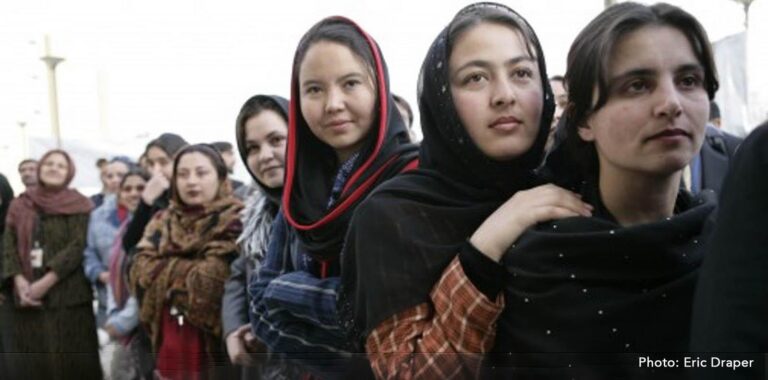Germany has witnessed a significant surge in asylum applications from Afghan women in recent months, as the Taliban’s intensified repression fuels fears for their safety and freedom. According to official statistics, the number of Afghan female asylum seekers has risen sharply, highlighting the dire human rights situation in Afghanistan since the Taliban’s return to power. This uptick underscores Germany’s growing role as a destination for those fleeing persecution, amidst mounting challenges in managing the influx and providing adequate protection.
Germany Faces Surge in Afghan Women Asylum Seekers Fleeing Taliban Repression
In recent months, Germany has witnessed a significant increase in the number of Afghan women seeking asylum, as harsh measures imposed by the Taliban regime have intensified gender-based repression in Afghanistan. Many of these women cite threats to their personal safety, restrictions on education, employment, and freedom of movement as primary reasons driving them to flee. Human rights organizations have highlighted the alarming impact of these policies, which disproportionately affect women’s basic freedoms and contribute to a growing exodus aimed at finding refuge in safer countries.
Key challenges faced by Afghan women asylum seekers in Germany include:
- Access to legal assistance and navigating complex asylum procedures
- Securing accommodation and social integration support
- Overcoming language barriers and cultural adaptation
- Access to healthcare, including psychological treatment for trauma victims
| Year | Afghan Women Asylum Applications | Percentage Increase |
|---|---|---|
| 2021 | 1,250 | – |
| 2022 | 3,800 | 204% |
| 2023 | 7,400 (estimated) | 95% |
Challenges in Integration and Access to Support Services for Afghan Women Refugees
Afghan women refugees arriving in Germany face numerous hurdles that complicate their integration into society. Language barriers remain a significant obstacle, limiting their ability to access essential services such as healthcare, education, and legal assistance. Additionally, cultural differences and social isolation often exacerbate mental health struggles, which are compounded by the trauma of displacement and ongoing fears related to Taliban repression back home.
Access to support services is uneven, with many women encountering bureaucratic delays and a lack of tailored programs sensitive to their unique needs. Key challenges include:
- Insufficient interpreters skilled in Dari and Pashto during asylum procedures
- Limited childcare facilities that prevent mothers from attending language courses or vocational training
- Inadequate psychological support specifically designed for trauma and gender-based violence survivors
| Challenge | Impact | Potential Solution |
|---|---|---|
| Language Barrier | Reduced access to legal and medical aid | Expand specialized interpreter programs |
| Childcare Scarcity | Hinders participation in integration courses | Increase childcare support for refugee families |
| Psychological Trauma | Impedes social integration | Develop trauma-informed counseling tailored to Afghan women |
Policy Recommendations to Enhance Protection and Empowerment of Afghan Women Asylum Seekers in Germany
To address the urgent needs of Afghan women asylum seekers, German policymakers must prioritize a multi-faceted approach focused on both protection and empowerment. This includes the establishment of secure housing facilities that specifically cater to women’s safety and privacy, alongside access to tailored psychological support services to help survivors of trauma and gender-based violence. Additionally, legal frameworks should be streamlined to expedite residency procedures, minimizing the prolonged uncertainty that many face during the asylum process.
Empowerment initiatives should incorporate comprehensive language and vocational training programs, enabling Afghan women to integrate more effectively into German society and the workforce. Collaboration with NGOs and local communities will be essential to create culturally sensitive support networks. Key policy actions recommended are:
- Dedicated legal aid: Specialized counseling on asylum laws and women’s rights.
- Safe community centers: Spaces offering education, childcare, and mental health resources.
- Employment pathways: Apprenticeships and mentorships tailored for Afghan women.
| Policy Area | Proposed Action | Expected Impact |
|---|---|---|
| Housing | Women-only shelters | Enhanced safety |
| Legal Support | Fast-track asylum claims | Reduced waiting times |
| Employment | Skill development courses | Economic independence |
In Conclusion
As Germany continues to grapple with a significant increase in asylum applications from Afghan women fleeing Taliban repression, the situation underscores the ongoing humanitarian crisis in Afghanistan. The influx highlights the urgent need for international support and robust asylum policies to protect vulnerable populations escaping violence and persecution. As the global community watches closely, Germany’s response may set important precedents for how nations address complex migration challenges stemming from conflict and human rights abuses.




